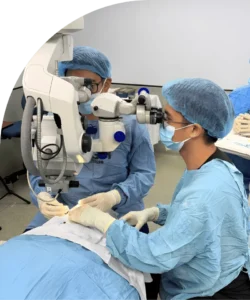Understanding 24/7 Home Care Services
24/7 Home Care Services provide continuous support for individuals who require assistance throughout the day and night. Unlike part-time care, which might only cover a few hours per day, round-the-clock care ensures that someone is always available to help with daily tasks and emergencies. This type of care is particularly beneficial for seniors, individuals with chronic illnesses, or those recovering from surgery or injuries. Continuous care helps prevent accidents and ensures that health conditions are closely monitored. Many families prefer 24/7 home care because it allows loved ones to remain in the comfort of their own homes while receiving professional support. It also offers peace of mind for family members who may not be able to provide full-time care themselves. With trained caregivers available at all times, clients receive a level of attention that promotes both safety and independence.
Key Features of 24/7 Home Care Services
One of the most important aspects of 24/7 Home Care Services is the ability to provide personalized, around-the-clock support. Caregivers assist with essential daily activities such as bathing, dressing, grooming, and meal preparation. Medication management is another key component, ensuring that clients take their prescriptions on time and correctly. Beyond physical assistance, caregivers offer emotional support and companionship, which is vital for mental well-being. Emergency response measures are integrated into the care plan, including immediate attention in case of falls or sudden illness. Caregivers also monitor health conditions, reporting changes to family members or healthcare providers. This combination of physical, emotional, and medical support makes 24/7 home care a comprehensive solution for those in need of continuous assistance.
Benefits of 24/7 Home Care Services
The advantages of 24/7 Home Care Services extend far beyond basic assistance. Continuous care allows individuals to maintain their independence while having someone available for help whenever needed. Hospital readmissions and medical complications are reduced because caregivers closely monitor health and promptly respond to issues. Family members experience less stress knowing their loved ones are safe and well cared for at all times. Care plans are personalized to match specific needs, making sure every client receives appropriate support. Emotional well-being improves because clients receive companionship, reducing feelings of isolation. Flexible scheduling allows care to adapt as health conditions change, ensuring consistent quality. With round-the-clock care, the home becomes a safe, nurturing environment that supports both physical and mental health.
Choosing the Right 24/7 Home Care Provider
Selecting the right provider is crucial for effective 24/7 Home Care Services. Start by verifying credentials, licenses, and certifications to ensure caregivers meet professional standards. Experience and training are equally important, as skilled caregivers can handle complex medical or personal needs. Compatibility and trust between the caregiver and the client are essential for a positive relationship. Evaluate the range of services offered to ensure they meet all necessary requirements, from basic assistance to specialized medical support. Transparent pricing and payment options make it easier to plan for long-term care. Reading reviews and requesting references can also provide insight into the reliability of the provider. By carefully considering these factors, families can choose a provider that delivers both professional care and personal attention.
Common Challenges and How to Overcome Them
Even with professional care, challenges can arise in 24/7 Home Care Services. Caregiver fatigue and burnout may occur, making it necessary to have rotating shifts and backup caregivers. Coordination with healthcare professionals is essential to keep treatment plans updated and ensure consistency in care. Emergencies and unexpected situations require caregivers to be prepared and well-trained to respond calmly and efficiently. Maintaining high-quality care every day requires continuous evaluation and communication between caregivers, clients, and families. Families should also plan for adjustments when health needs change, ensuring the care plan evolves accordingly. Building a strong relationship with caregivers improves communication and reduces potential misunderstandings. Addressing these challenges proactively ensures that continuous care remains safe, reliable, and effective.
Technology and 24/7 Home Care Services
Technology plays a significant role in enhancing 24/7 Home Care Services. Telehealth platforms allow caregivers to consult with medical professionals without leaving the home. Fall detection devices and medical alert systems provide immediate assistance if a client experiences an accident. Smart home devices can control lighting, temperature, and other environmental factors to improve safety and comfort. Health tracking apps and remote monitoring tools help caregivers keep track of vital signs and overall well-being. These technologies support caregivers by providing real-time data and alerts that improve response times. Combining human care with advanced technology ensures a higher level of safety, efficiency, and peace of mind for families.
Costs and Financial Considerations
The cost of 24/7 Home Care Services can vary depending on location, level of care, and specific client needs. On average, full-time home care may be higher than part-time care but often costs less than extended hospital stays or long-term facility care. Some insurance plans and Medicare may cover certain aspects of home care, making it more affordable. Families should research all payment options, including private pay, long-term care insurance, and government programs. Budgeting for continuous care includes considering not just hourly rates but also additional services, equipment, and technology. Transparent communication with the home care provider ensures there are no hidden costs. Proper planning can make round-the-clock care accessible without compromising quality.
FAQs About 24/7 Home Care Services
- Who can benefit most from 24/7 home care services? Seniors, individuals with chronic illnesses, those recovering from surgery, or people with disabilities can all benefit from continuous care.
- How do caregivers manage night shifts and continuous care? Caregivers work in shifts or rotations to ensure rest and alertness, with backup staff available when needed.
- What qualifications should I look for in a 24/7 home care provider? Look for licensed, certified, and experienced caregivers with training in personal care, medication management, and emergency response.
- Are 24/7 home care services covered by insurance or Medicare? Some services may be covered, depending on the plan and eligibility. Families should check with their providers and insurance companies.
- Can 24/7 home care be customized for short-term needs? Yes, care plans can be tailored for temporary recovery periods or specific short-term requirements.
How to Get Started With 24/7 Home Care Services
Assessing the care needs of your loved one is the first step in initiating 24/7 Home Care Services. Identify tasks that require assistance and any medical monitoring needed. Research reputable home care agencies, considering factors like experience, services offered, and client reviews. Schedule consultations to discuss care plans, costs, and caregiver compatibility. Once a plan is established, caregivers can begin providing support, with ongoing monitoring and adjustments as necessary. Regular communication with caregivers ensures the care plan remains effective and responsive to changing needs. Starting the process early allows families to select the best care and make necessary preparations for continuous support.
Takeaway
24/7 Home Care Services offer a comprehensive solution for individuals who require continuous assistance, ensuring safety, health, and emotional well-being. By understanding the services available, evaluating providers carefully, and integrating technology where possible, families can provide high-quality care in the comfort of home. Continuous care helps maintain independence, reduces medical risks, and gives peace of mind to both clients and family members. Planning and choosing the right support can make a significant difference in the quality of life for those who need round-the-clock care.










